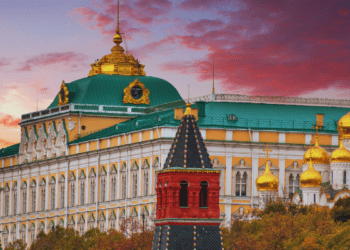In the May 15 edition of Embassy Magazine, MLI’s Alex Wilner makes the case that counter terrorism efforts must be an concerted effort including intelligence, police and the military in order to effectively stem terrorist organizations from establishing bases of operations to carry out attacks.
Why the military counts in counter terrorism
From Afghanistan to Mali to the Mediterranean, all facets of Canada’s military have been engaged.
Alex Wilner, Embassy Magazine, May 15, 2013
Counterterrorism has been a top priority of Canada’s security establishment for over a decade. This is no less true today than it was in the immediate aftermath of 9/11.
In 2013 alone, we’ve foiled an al Qaeda plot targeting VIA Rail, are investigating links between the Boston Marathon bombers and a Russian-born Canadian radical, and are contemplating what to do about the rising number of Canadian al Qaeda recruits fighting and dying overseas.
What’s different is that today there’s a growing perception that counterterrorismis a policing, intelligence, and judicial issue, not a military issue. In a 2008 hallmark study assessing the lifespan of nearly 650 terrorist groups, RAND, a US public policy think tank, found that “military force has rarely been the primary reason” for why “terrorist groups end.” It is simply too “blunt an instrument” to be particularly effective. Better to rely on police and intelligence work.
And when we consider the manner in which al Qaeda has shifted its focus in recent years, the military’s apparent demise appears even more pertinent. Out of necessity, al Qaeda has changed how it does things. Battered and bruised in places like Afghanistan, Saudi Arabia, Iraq, and Pakistan, the organization is carving out safe havens on new fronts in Syria, Somalia, Yemen, and North and West Africa.
But as it consolidates these footholds, it has emphasized “do-it-yourself terrorism” in its international operations against the West. “Spectacular” attacks, like 9/11 or the underwear bomber’s near miss in 2009, are to be augmented by smaller, homegrown attacks.
Al Qaeda’s intent is to persuade Western radicals to conduct less sophisticated attacks in their own backyard. Small bombs, like those used in the attacks in Boston last month, and in Times Square and Stockholm, Sweden in 2010, are perfect examples.
These bombs were relatively easy to build. All al Qaeda has to do is point to its online manuals. But even bombs aren’t a requirement; al Qaeda has placed stock in mass shootings, like those carried out in Fort Hood, Texas and Little Rock, Arkansas in 2009, at the Frankfurt Airport in Germany in 2011, and in Toulouse, France, in 2012.Though simple attacks, these shooting sprees left their mark.
In none of these cases would military force have been effective at defeating a specific threat.
And yet despite all of this, it is a mistake to count the military out. Consider Canada’s recent experience: all facets of Canada’s military have been engaged in combating terrorism.
Until recently the Canadian Forces were busy in Afghanistan dislodging terrorist encampments. By harassing al Qaeda and other groups, the CF kept militants on the run. Canadian personnel saw major action throughout the deployment and at times, took heavy losses.
But the intent was clear: Canadian military engagement in Afghanistan forced al Qaeda to spend time, resources, and energy seeking shelter rather than orchestrating the next 9/11.
More recently, the Royal Canadian Air Force was active in Mali supporting a French-led intervention targeting al Qaeda’s African affiliates. With militants threatening to overrun Mali, France stepped in. Canada was quick to help.Our contribution included a heavy lift transport aircraft, instrumental in helping France shuttle military gear into position. Today, Mali is no longer an al Qaeda stronghold.
Canadian Special Forces were also active in Bamako, Mali’s capital. They were dispatched to help protect Canadian diplomatic offices and staff from militant reprisals. And other Special Forces were reportedly sent to neighbouring Niger to help train local troops in counterterrorism operations.
The Royal Canadian Navy has also had a role in global counterterrorism. In Operations Active Endeavour and Apollo, for instance, Canadian warships patrolled, among other places, the Mediterranean and Arabian Seas. These missions sought to stem the flow of militant weapons and manpower.
And at home, CF personnel have been employed to help the RCMP, local police, and Public Safety in domestic counterterrorism training and preparation. This was particularly evident during the 2010 Vancouver Olympic Games, where the CF was prepared to face and tackle a multitude of different terrorist adversaries, were they to attack the Games.
Effective counterterrorism requires a whole-of-government response. But theCanadian military is an equal partner with domestic intelligence and police forces in protecting us from terrorist threats.
Alex Wilner is a research affiliate with the Munk School of Global Affairsat the University of Toronto and the ETH Zurich, Switzerland, and is a fellow at the Macdonald-Laurier Institute in Ottawa.




